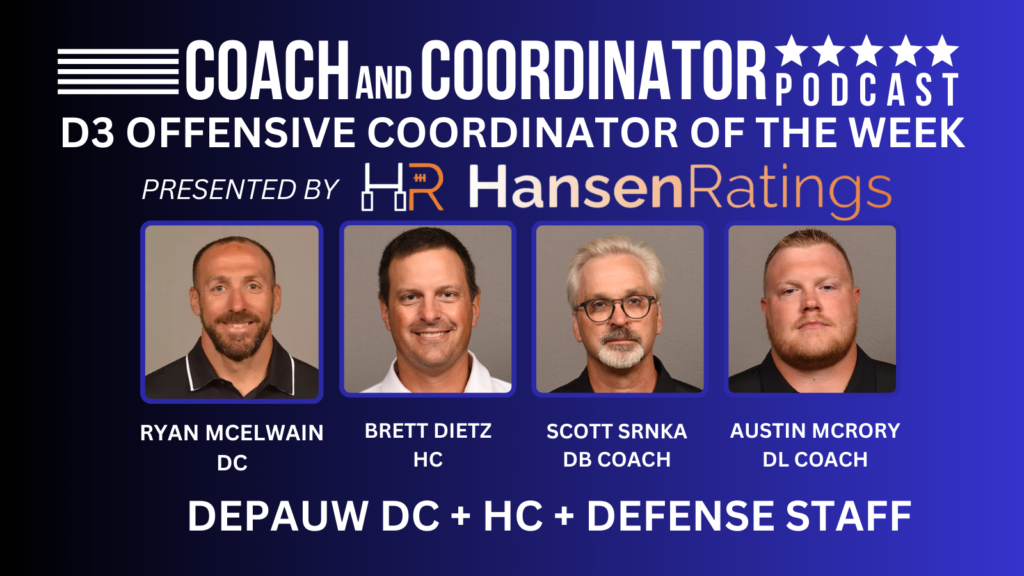
At DePauw University, the defense isn’t just a unit—it’s a subculture within the team, driven by trust, communication, and alignment to the team’s culture. As Defensive Coordinator Ryan McElwain puts it, “Defensively, it’s a subculture of our team. We’re all wearing the same colors on Saturday, but within the defense, we push each other to get better every day. It’s about building trust among the players and coaches, ensuring that every guy can rely on the one next to him to execute their role.” This mentality has led to a defense that not only stands out but plays a role in achieving the overall team goals set by Head Coach Brett Dietz.
Ryan McElwain’s defensive goals for DePauw’s football team are intricately aligned with the overall team goals set by head coach Brett Dietz, referred to as “STEP.” These goals embody a holistic approach, ensuring that every facet of the game, from offense to defense, contributes to the team’s success. “STEP” stands for:
- Starting Field Position
- Turnover Margin
- Explosive Plays
- Possession Downs
These team goals emphasize playing complementary football, where each unit supports the other, and McElwain’s defensive strategies are designed to fit within this framework.
1. Starting Field Position
Coach Dietz emphasizes that winning the field position battle is critical to putting the team in the best position to score. For the defense, McElwain focuses on three-and-outs and takeaways as primary tools to achieve this. By forcing quick stops and turnovers, the defense can create short fields for the offense, maximizing the team’s chance of scoring. In their recent win against Barry, DePauw’s defense allowed only eight first downs and 2.2 yards per play, consistently winning the field position battle.
2. Turnover Margin
Turnovers are a game-changer, and Dietz’s goal for the team is to finish with a positive turnover margin each game. McElwain has taken this a step further by focusing on the turnover-to-touchdown ratio, with a goal of being +1 each game. He counts not only traditional takeaways like interceptions and fumbles but also three-and-outs as defensive “turnovers.” This creates a defensive mindset centered on seizing every opportunity to disrupt the opponent’s offense and flip momentum. Against Barry, DePauw’s defense achieved an impressive +10 in this ratio, demonstrating the impact of this approach.
3. Explosive Plays
Explosive plays can quickly turn the tide of a game, and Dietz’s goal is to minimize them on defense while creating them on offense. McElwain’s defensive goal is to limit these explosive plays by focusing on fundamentals: proper tackling, assignment soundness, and avoiding breakdowns in coverage. By drilling these key points, McElwain ensures that DePauw’s defense can minimize big gains, forcing opponents to work harder for every yard. In their shutout win over Barry, they limited the opposition to just two explosive plays.
4. Possession Downs (Third and Fourth Down Efficiency)
Great situational football, particularly on third and fourth downs, is another core part of the STEP framework. For McElwain’s defense, this means getting off the field when it matters most. The defense is trained to anticipate tendencies based on down and distance, allowing them to make critical stops. Against Barry, DePauw’s defense excelled on third down, constantly putting the offense in tough situations and denying opportunities for conversions.
How the Defensive Goals Align:
- Turnover-to-Touchdown Ratio fits under Turnover Margin, with the defense focused on creating turnovers and three-and-outs to win the possession game.
- No Sudden-Change Touchdowns and Explosive Plays directly relate to Explosive Plays, where McElwain aims to limit the opponent’s ability to capitalize on big moments or sudden shifts in momentum.
- 18 Big Defensive Plays and Scoring/Setting up Scores connect with both Starting Field Position and Possession Downs, focusing on creating impactful defensive plays that either stop drives or create scoring opportunities for the offense.
By integrating these defensive goals into Coach Dietz’s STEP philosophy, McElwain ensures that DePauw’s defense is not only focused on stopping opponents but actively contributing to the team’s overall success. These goals help form a cohesive game plan, where each defensive stop pushes the team one step closer to victory.
D3 Defensive Coordinator of the Week

The Coach and Coordinator Podcast, in collaboration with Modern Football Technology and Hansen Ratings, is excited to announce Ryan McElwain, defensive coordinator at DePauw University, as the D3 Defensive Coordinator of the Week for Week 2. McElwain’s defense delivered a dominant performance, securing a 33-0 shutout win over a Berry team that had averaged 53 points per game over their previous 11 contests.
Notable Stats:
- Allowed only 8 total first downs, with just 2 by penalty.
- Held Berry to under 75 yards rushing and 75 yards passing.
- Limited Berry to 2.2 yards per play.
- Of the 144 total yards allowed, 67 came on a single drive.
- Forced 8 three-and-outs and recorded a safety in just two plays.
McElwain’s defensive strategy completely neutralized Berry’s typically explosive offense, making this shutout one of the most impressive defensive efforts of the week. This performance earned him the title of Defensive Coordinator of the Week.


